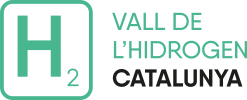Both entities are committed to the energy transition and to the reactivation of the economy and have joined forces to promote the renewable hydrogen value chain and access to NEXTGEN-EU funding
The Universitat Rovira i Virgili and Enagás have signed a strategic collaboration agreement to promote the Vall de l’Hidrogen de Catalunya (Hydrogen Valley of Catalonia), which currently brings together more than one hundred public and private partners with a portfolio of 30 projects in the ambits of the chemical industry, mobility, the circular economy, hydrogen infrastructure, R+D+I, and training. The Vall de l’Hidrogen de Catalunya has been identified by the Catalan Government as one of 27 projects intended to drive the economic recovery, and aims to implement a hydrogen-based and climate-neutral economy and society.
The agreement also aims to help projects associated with the Vall de l’Hidrogen de Catalunya to access NEXTGEN-EU funding through mechanisms such as the PERTE (strategic projects for economic recovery and transformation) that are promoted by the Spanish government.
The URV and Enagás, as important players in the energy transition, will coordinate their efforts to promote the industrial and technological abilities of the manufacturing and energy sectors of Catalonia. Both are aware that to achieve the goal of decarbonisation and to implement the use of hydrogen, the necessary infrastructure and conditions have to be created to enable companies to undertake projects aimed at advancing the environmental transition.
The rector of the Universitat Rovira i Virgili, María José Figueras, has realized the importance of signing an agreement with the Vall de l’Hidrogen de Catalunya and with an industrial partner such as Enagás, whose importance in the energy sector will enable them to lead the most significant project in the Vall de l’Hidrògen: “Our joint public and private leadership will promote the projects of the Vall de l’Hidrogen and enable an industrial energy transition that will have a massive economic and social impact on the territory.”
The president of Enagás, Antonio Llardén, stated that “in line with Enagás’ commitment to decarbonisation and a fair transition, this agreement will give added value to the industrial and technological capacity of the manufacturing and energy sectors of Catalonia, thanks to the development of an economy based on renewable hydrogen in line with Spanish and European route maps”.
The URV, as the public university of Tarragona, has been recognised for its excellence in training, research and innovation and is strongly committed to the challenges facing the territory that it serves and, by extension, Catalonia. Among these challenges is the need to tackle climate change and to implement the energy transition that will reactivate the economy and promote a better environmental future.
Enagás is present in eight countries and is a leading company in Spain in terms of the design, development, management and operation of energy infrastructures. The company is certified as a Transmission System Operator (TSO) by the European Union and is committed to energy transition and the development of renewable gases within the process of decarbonisation and the promotion of the circular economy. Enagás’ commitment to the new era of renewable hydrogen is clear through its participation throughout Spain and, in particular, in the Green Crane Tarragona initiative, which involves the production of 50 tonnes a day of renewable hydrogen for industrial purposes.
